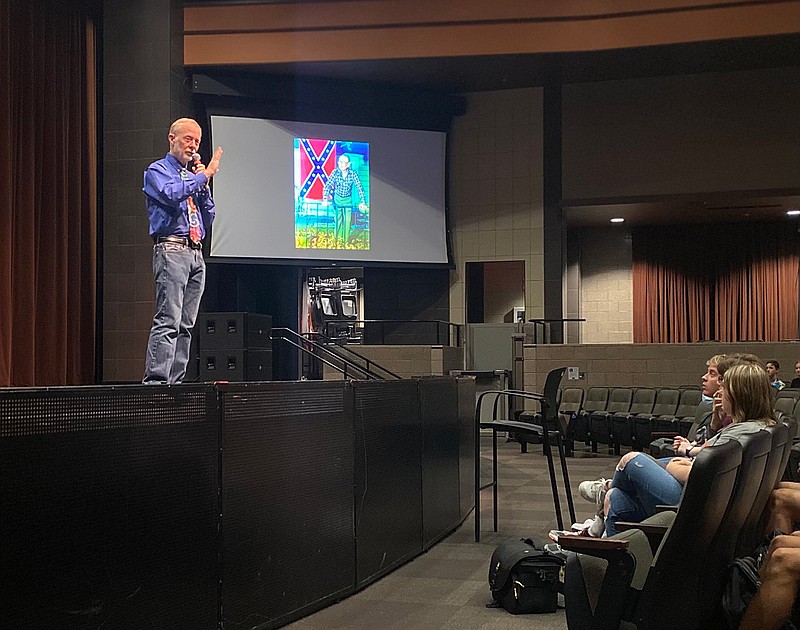TEXARKANA, Texas - Jerry Mitchell, a renowned investigative journalist, author and Texarkana native, returned to his alma mater, Texas High School, to lecture students in a U.S. Government class.
Mitchell's lecture painted a vivid and eye-opening portrayal of his experiences while uncovering some of the most unjust crimes committed by klansmen during the civil rights era.
Known by some in the area as "Boo," Mitchell is a 1977 graduate of Texas High School who worked as an intern at the Texarkana Gazette before a long reporting career at the Arkansas Democrat and the Jackson, Mississippi, Clarion-Ledger. In 2018, he founded the Mississippi Center for Investigative Reporting.
In 1989, the film Mississippi Burning inspired him to look into old civil rights cases that many thought had long since turned cold.
His work led to breaks and convictions in infamous 1960s cases such as the assassination of civil rights leader Medgar Evers, the firebombing of NAACP leader Vernon Dahmer, the bombing of a Birmingham, Alabama, church that killed four young girls and the murders of three young civil rights activists.
Mitchell has received more than 20 national awards, including a MacArthur Foundation genius grant. He was recognized, along with three other journalists, at the Kennedy Center honors in 1999 and was named a Pulitzer Prize finalist.
While a large portion of the convictions caused by Mitchell's work came decades after the crimes were committed, Mitchell said his mindset was always that justice is better late than never.
"You know, sometimes people will see these old guys going off to trial, some who get arrested, and they'll say to me, 'Jerry, why don't you leave these old men alone?' You know what I tell them? These were young killers - they just happened to get old," Mitchell said.
Mitchell spoke to the students, some of whom are interested in journalism, about living fearlessly and being persistent.
"I've had dozens of death threats and things like that," he said. "And obviously it's unnerving to be threatened, and you worry about not just yourself, but your family. But it really has lent an unexpected gift, and that's the gift of living fearlessly. Living fearlessly is not about living without fear. Living fearlessly is about living beyond fear and living for something greater than yourself.
"And isn't that what you see in the civil rights movement? You see people involved, and it was not about them. It was about the cause."
Mitchell's mother Jane said that while her son's tendency to rustle feathers and put himself out there caused worry for his safety at times, she always knew he'd be one to forge his own path from a young age.
"Boo always marched to a different drummer," she said. "If it was imperative that everybody wear a red shirt to school, he would show up in a blue shirt. And the criticism didn't matter to him. He wasn't trying to be obnoxious about it, he just didn't want to do what everybody else does."
Mitchell answered various questions from students and members from the audience after his lecture, and spoke briefly about his recent memoir, "Race Against Time: A Reporter Reopens the Unsolved Murder Cases of the Civil Rights Era," which sheds light on some of the most significant and remarkable crimes in recent history - cases that had vexed authorities for decades.
A former editor at Texas High's "Tiger Times," he said Texas High is a great place for someone in his field to get started on their career path.
In a concluding statement he reflected on the headstone of James Earl Chaney, one of the three civil rights workers killed in Philadelphia, Mississippi, by members of the Ku Klux Klan on June 21, 1964.
"I think about James Chaney's headstone and what that says. 'There are those alive, yet will never live. There are those who are dead, yet will live forever.,'" he said. "In that moment, I realized each day we are etching the words of our headstone. What do you want your headstone to say?"
(For those interested in Mitchell's book, visit simonandschuster.com/books/Race-Against-Time/Jerry-Mitchell/9781451645149 online.)


